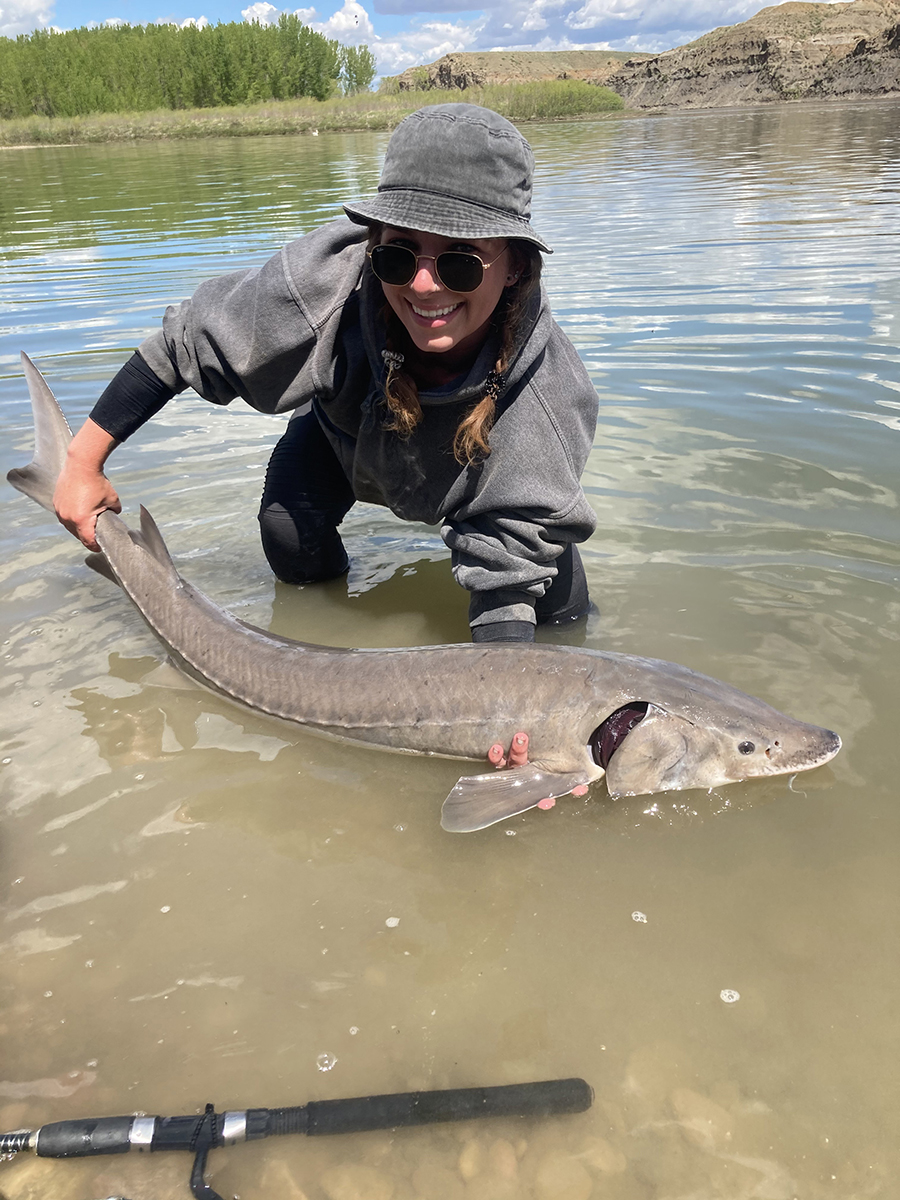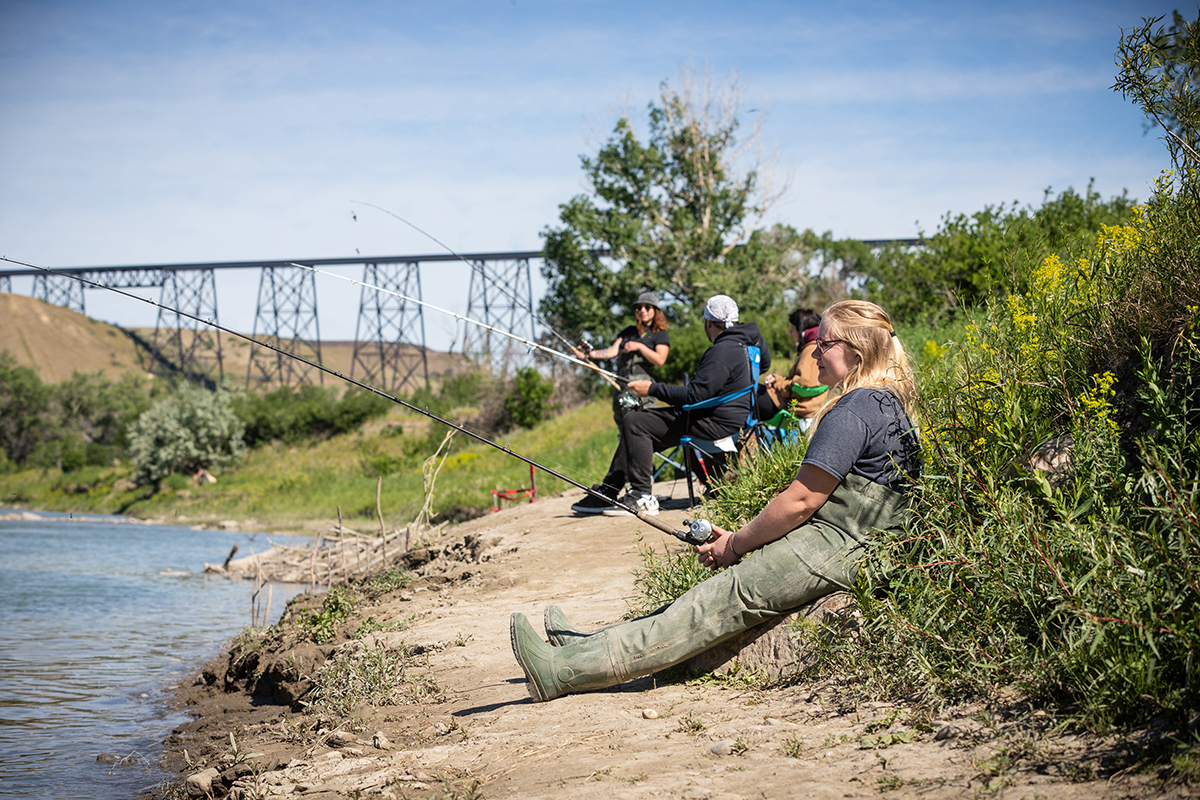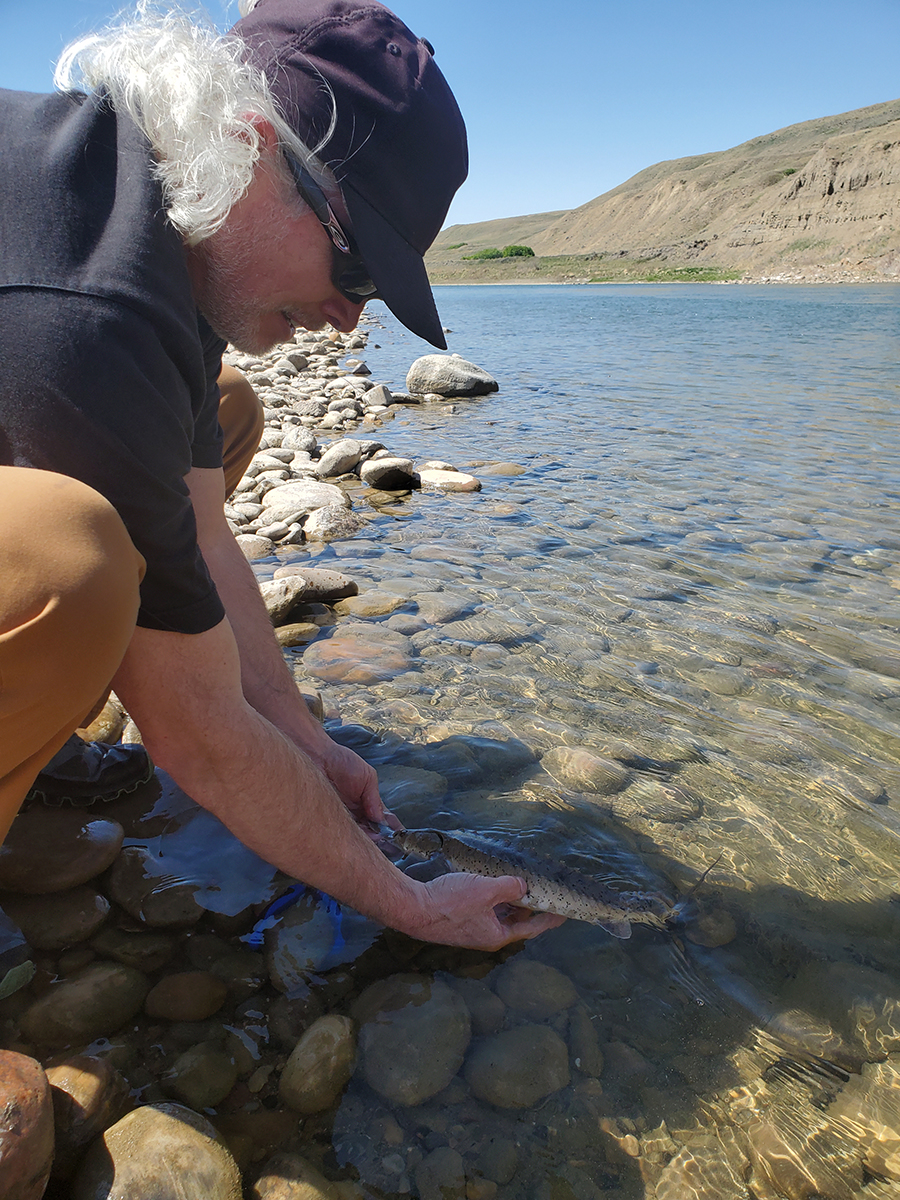
A Lethbridge College research project is giving insight into southern Alberta’s sturgeon population while offering students valuable first-hand experience in the field.
Led by John Derksen, chair of the Aquaculture Centre of Excellence (ACE) and Lethbridge College researcher Kristine Wilson, the project aims to develop a greater understanding of viruses affecting sturgeon in the South Saskatchewan River basin.
Today, sturgeon populations in the South Saskatchewan River are designated as endangered by the Committee on the Status of Endangered Wildlife in Canada. They are currently being considered for listing under the Species at Risk Act and are listed as Threatened under the Alberta Wildlife Act. Sturgeon management and recovery plans have identified herpes viruses as a threat to conservation efforts, but the risk is difficult to assess given the lack of information on the types of viruses and their presence in wild populations. It’s that gap that the team from ACE is hoping to fill this summer by catching sturgeon, collecting tissue samples from their fins and sending them to Fisheries and Oceans Canada for testing.
Derksen says the goal is to pave the way for using sturgeon in commercial aquaponics, in which fish, plants and beneficial microorganisms are grown together in an integrated system.

“In commercial aquaponics, 80 per cent of your revenue is going to come from the produce you grow, and the fish are secondary,” explains Derksen. “Because sturgeon are slow growing and don’t mature for 15 to 20 years, they are a good long-term investment, because you don’t have to separate the sizes when they get big and you don’t have to worry about finding a market for the fish.”
Derksen says the ACE team is interested in bringing in farmed sturgeon from British Columbia, but the research project needs to determine that the farmed fish won’t carry any diseases that wild domestic fish don’t already have. Derksen says their vision is to increase public awareness of this endangered species, enhance the competitiveness of the sturgeon aquaculture industry in Canada and showcase aquaponics as an environmentally sustainable, economically feasible approach for rearing sturgeon for caviar.

"We have already received inquiries from interested commercial aquaponics operators including Granary Road Learning Park and Farmer’s Market outside of Calgary," says Derksen.
The project also employs four summer students — Abigail Doerksen, Dongjin Kim, Kira Sawatzky and Joel Smith— from the college’s School of Environmental Sciences program for real world experience.
Sawatzky, a fourth year Bachelor of Ecosystem Management student, joined the team because of her interest in aquatic ecosystems, but she had never picked up a fishing pole before this summer.
“Honestly I didn’t even know about the ACE until this year when John brought a bunch of us in for an experiential week there,” Sawatzky recalls. “This project has really honed my fishing skills and understanding of sturgeon migratory paths.”
“I’ve learned a lot, like how to test if a surgeon is spawning or not, and how to take tissue samples, and of course it’s a fun just being able to fish for work,” says Doerksen.

The project is expected to continue through to the end of August with the goal of catching and sampling 180 sturgeon from areas across southern Alberta.
Agriculture research teams at Lethbridge College operate under the Integrated Agriculture Technology Centre (IATC) within the Centre for Applied Research, Innovation and Entrepreneurship. The IATC connects small- and medium-sized enterprises in the agriculture industry with the technologies and research expertise at Lethbridge College to enhance their productivity, competitiveness and innovation results. Lethbridge College has been recognized as one of Canada’s fastest-growing research colleges while earning its highest ever placement in 2020’s annual ranking of Canada’s top 50 research colleges. The college placed 26th on the top 50 list released by Research Infosource and ranked third in research income growth.
For more on this story, please see the Fall 2021 issue of Wider Horizons magazine, coming to newsstands in September.